A Fall Field Trip to Tour Restoration Projects at the Blue Ridge Discovery Center
October 28, 2022

October 28, 2022
On a crisp autumn day, a group of Virginia Tech colleagues took a field trip to the Blue Ridge Discovery Center located in Troutdale, Virginia. The adventure was organized by GCC affiliate Leighton Reid, assistant professor in the School of Plant and Environmental Sciences. Reid, along with Interfaces of Global Change PhD Fellows Melissa Burt and Jordan Coscia, all members of the Global Change Center Ecological Restoration Working Group, were joined by undergraduate students in the Ecological Restoration major and SER-VT student group.
The group enjoyed a tour of ecological restoration projects at the Blue Ridge Discovery Center from landscape educator Ali Reilly, including a restored beaver meadow and a beautiful rain garden installation. The afternoon was spent botanizing on Whitetop Mountain in a globally unique Southern Appalachian Grassy Bald plant community. Foray highlights included Hypericum mitchellianum (Blue Ridge St.-John's-wort), Gentianella quinquefolia (eastern stiff gentian), and Sibbaldiopsis tridentata (mountain cinquefoil).
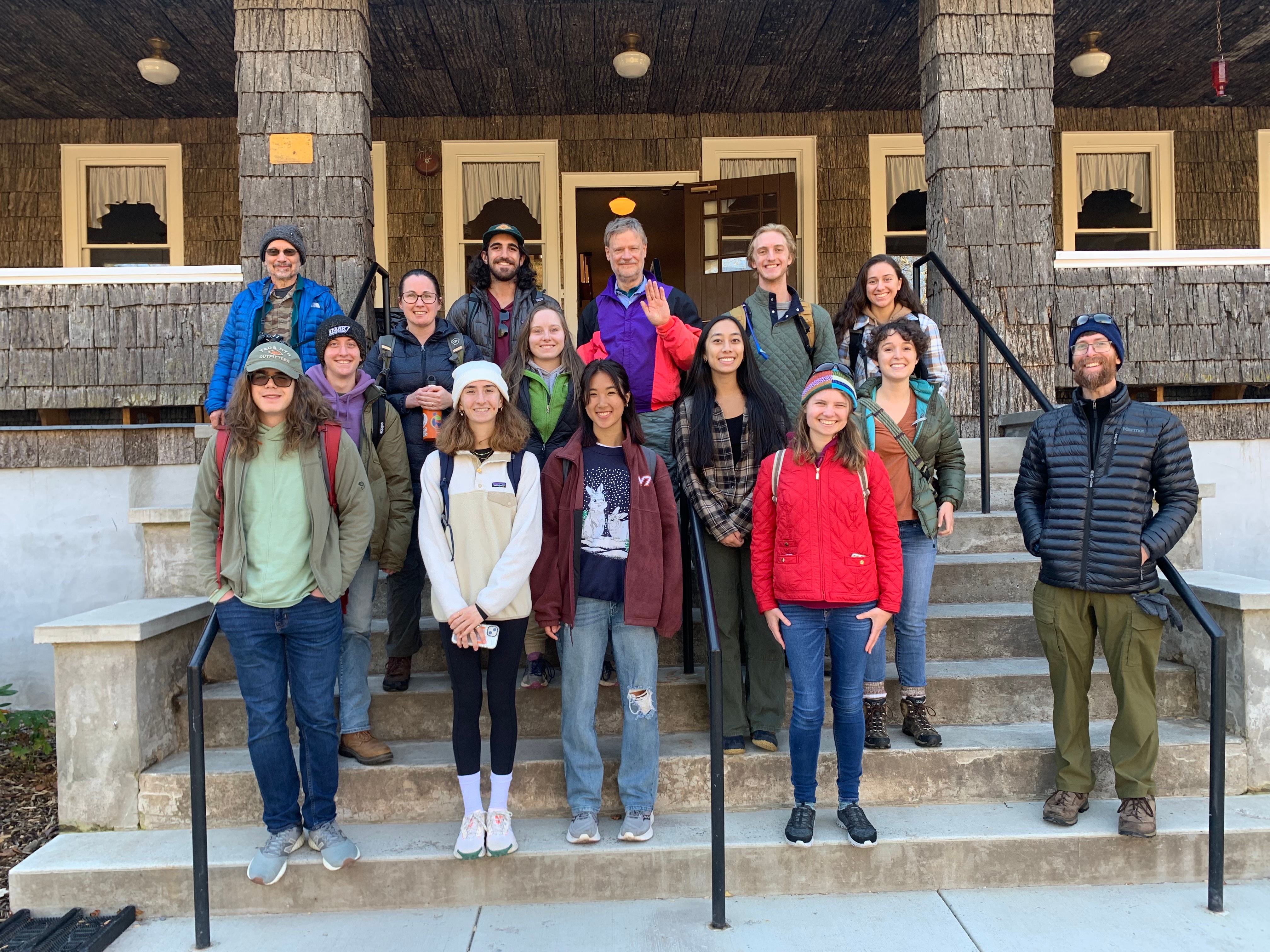
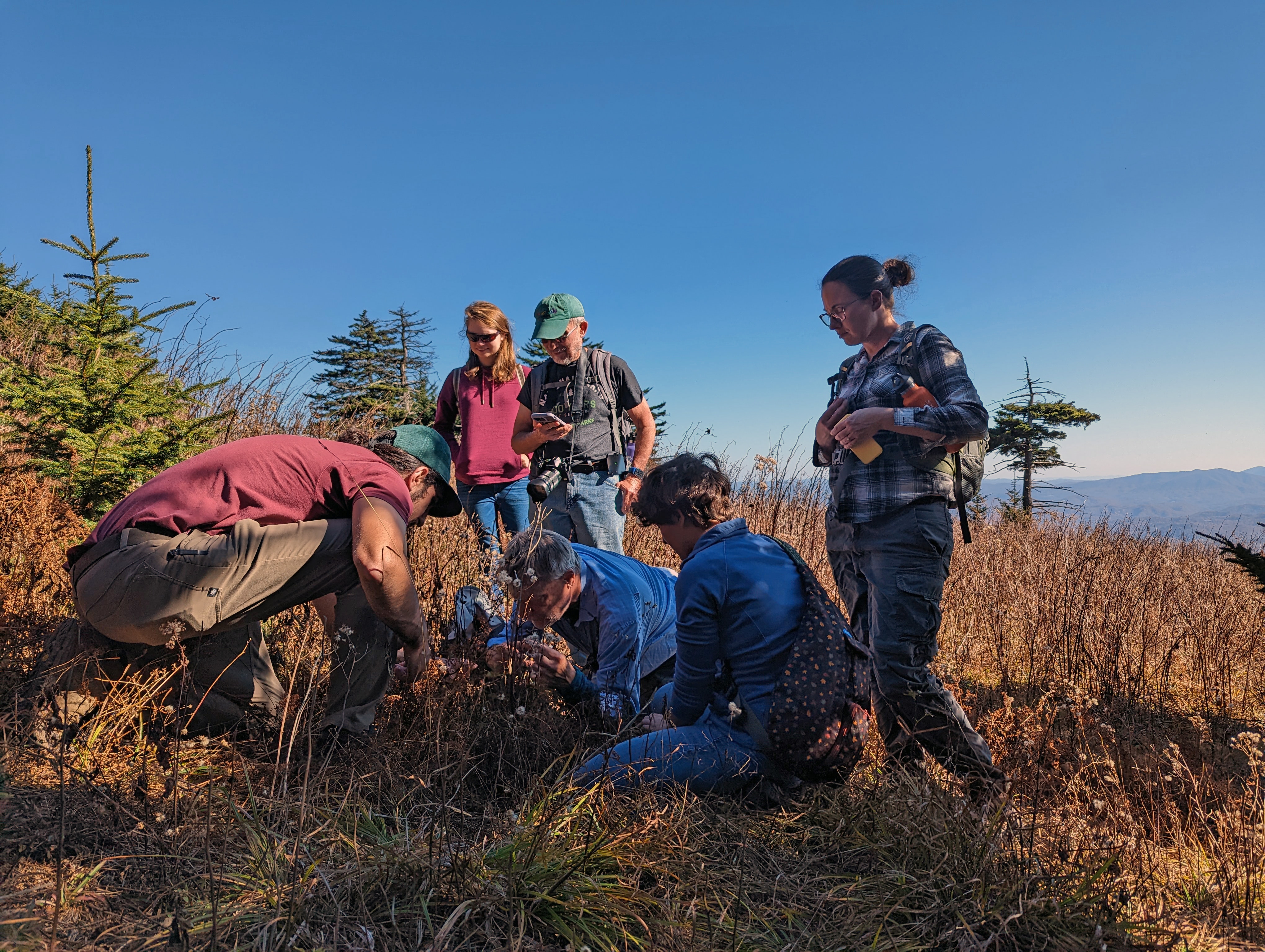
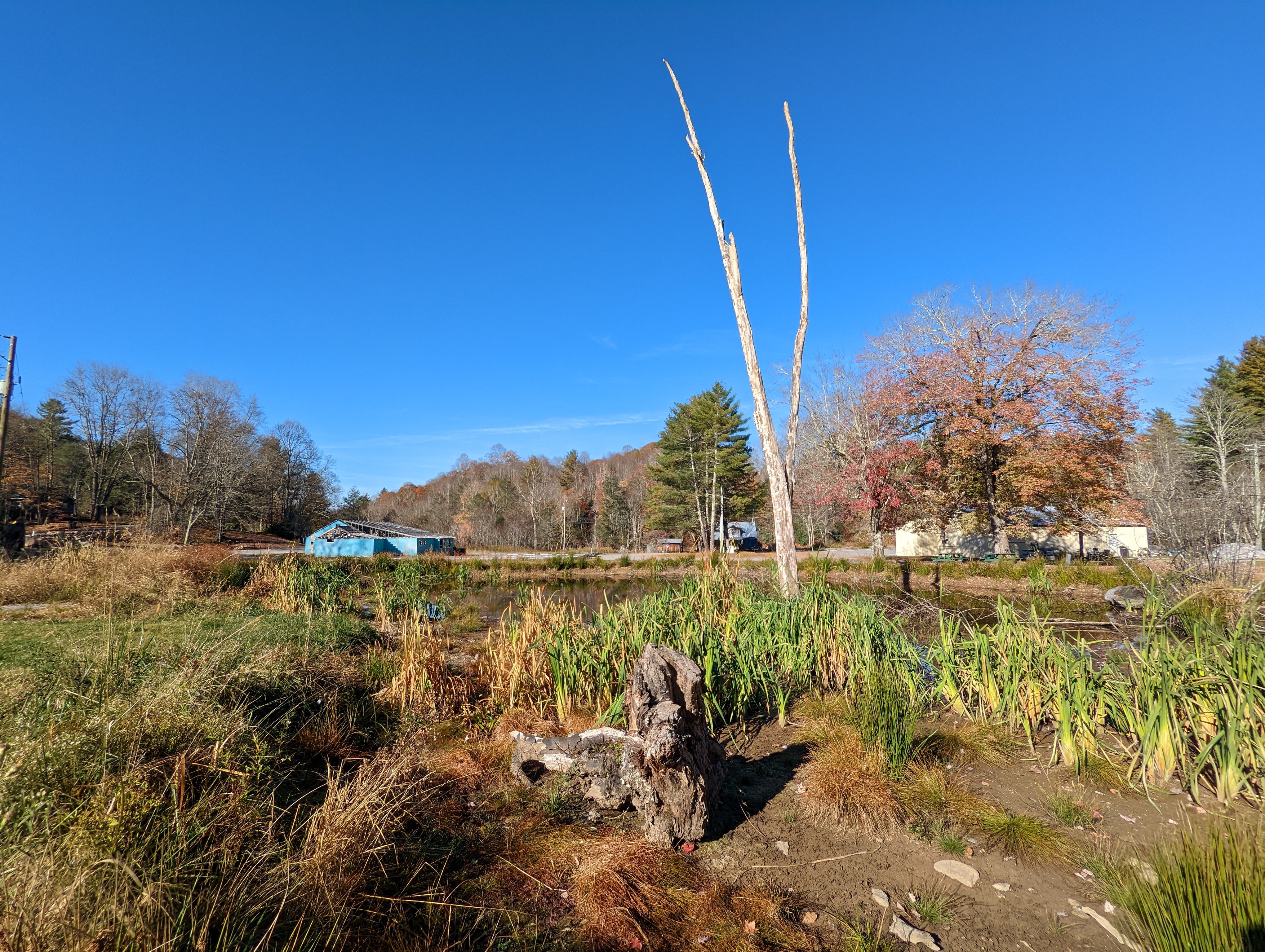
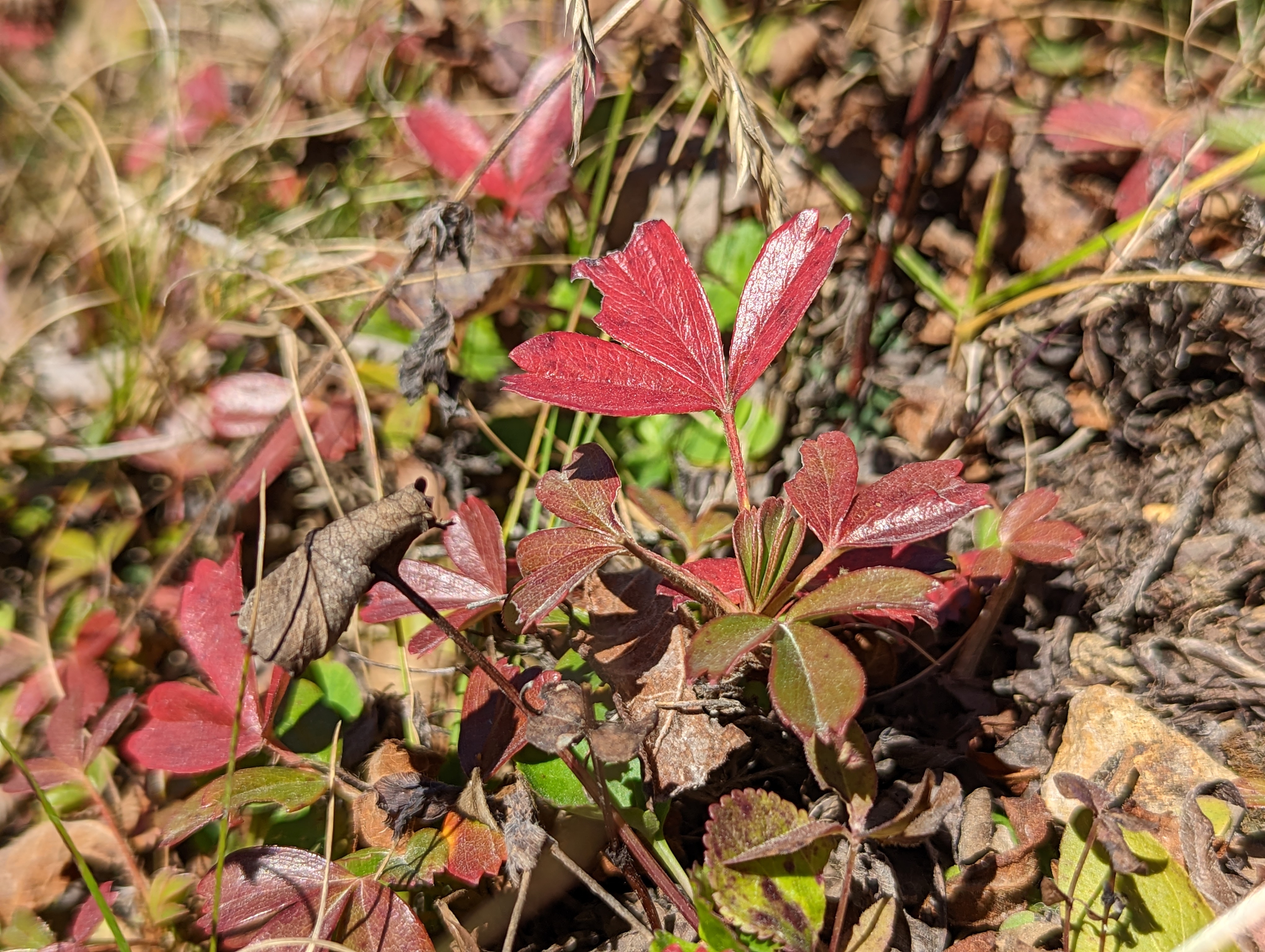
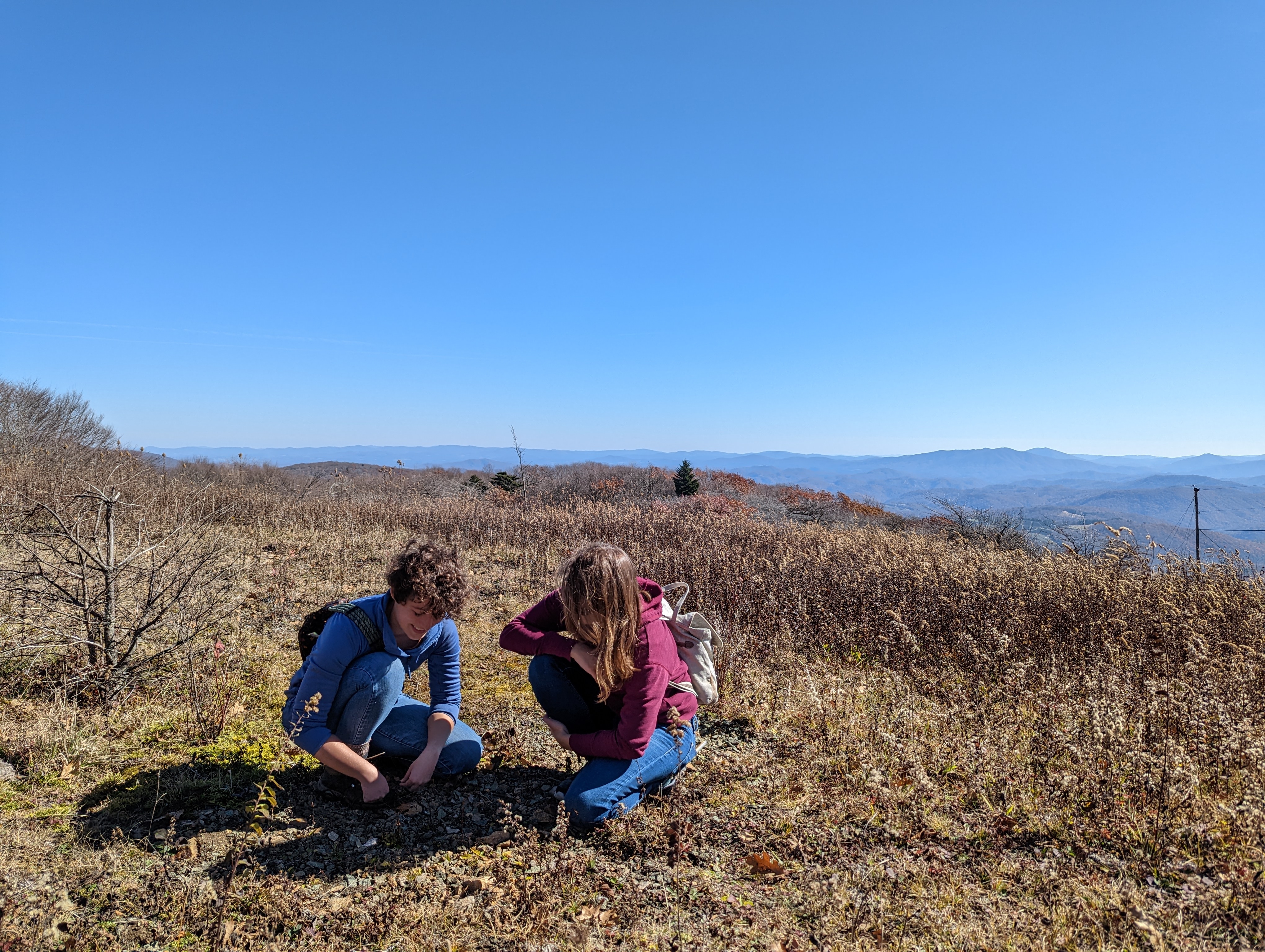
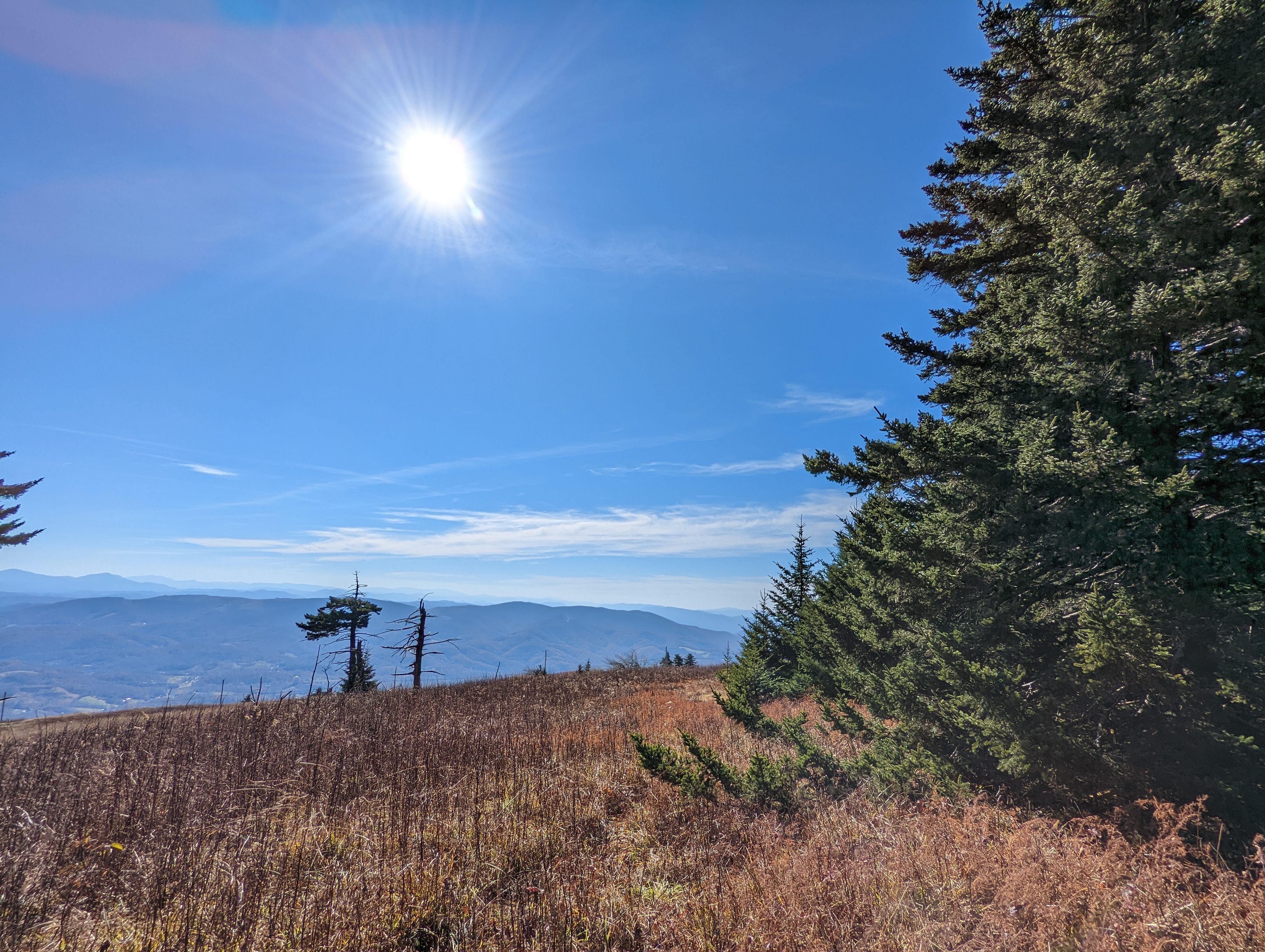
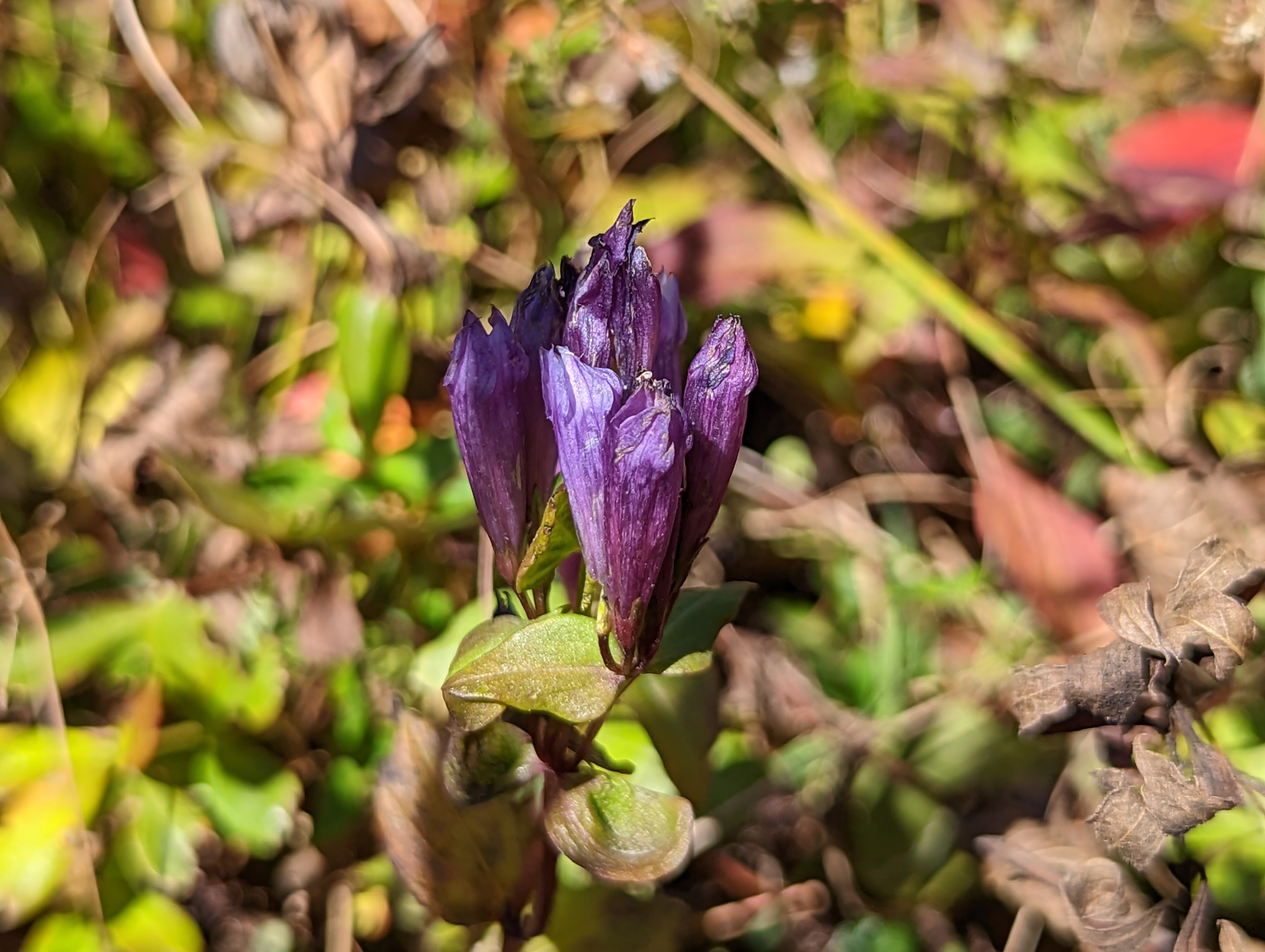
The Restoration Ecology Working Group is an interdisciplinary team of faculty and students reading, thinking, teaching, and researching about the most effective and equitable strategies for restoring biodiversity and environmental quality locally, regionally, and globally. Key activities include a reading and discussion group focusing on new restoration ecology research, interdisciplinary perspectives on restoration, and research proposal development.




